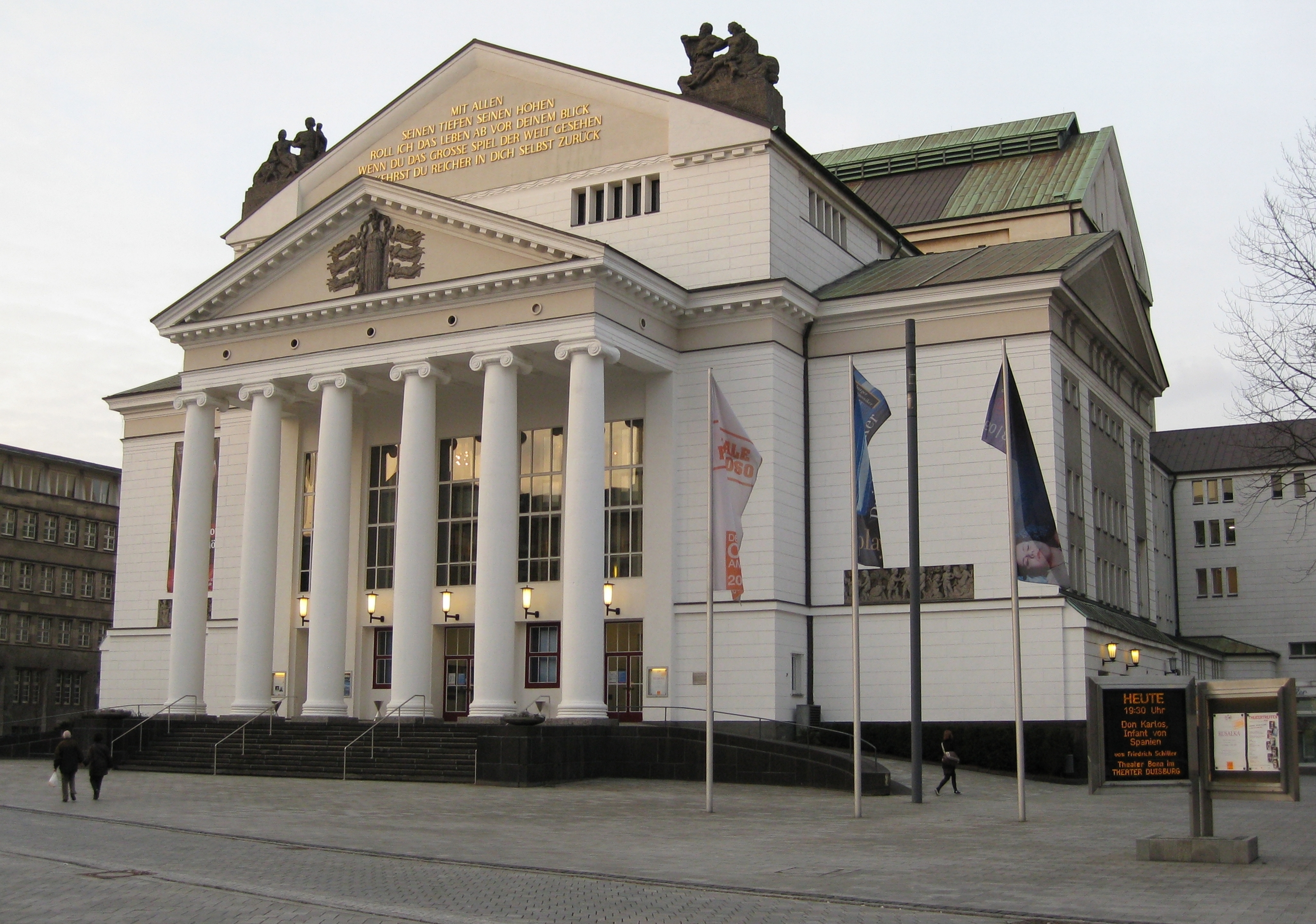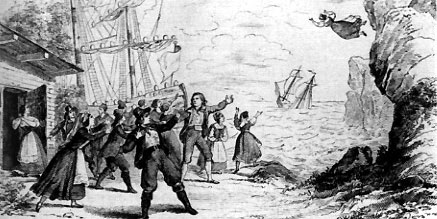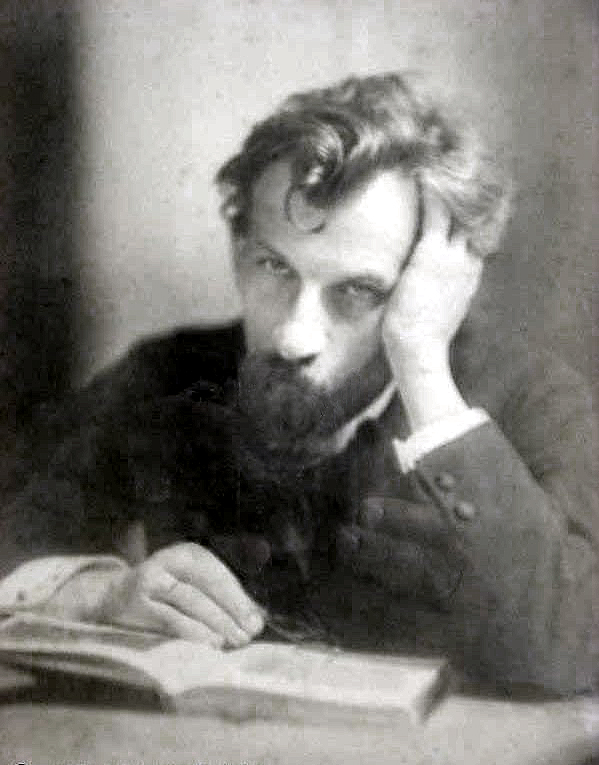|
Fritz Zaun
Fritz Zaun (19 June 1893 – 17 January 1966) was a German conductor and music educator and since the foundation of the Deutsche Oper am Rhein (Düsseldorf / Duisburg) in 1956 until his death was its General Music Director. Zaun grew up in his native town of Cologne and studied music and theatre studies, philosophy and literature in Cologne and Bonn. He received his first engagement in his native town: under the general music director Otto Klemperer he became choir director at the Cologne Opera. His further stations: opera director in Mönchengladbach, opera director at the Zurich Opera House, until 1939 general music director of the Cologne Opera and director of the Berlin Municipal Orchestra. Together with Wilhelm Furtwängler, he shaped the musical life in Berlin. He experienced the end of the war in Zagreb, where he was opera director and principal conductor of the Zagreb Philharmonic Orchestra (1945–1956). Afterwards, he was involved in the reconstruction of the Graz Opera ... [...More Info...] [...Related Items...] OR: [Wikipedia] [Google] [Baidu] |
Deutsche Oper Am Rhein
The Deutsche Oper am Rhein (German Opera on the Rhine) is an opera company based in Düsseldorf and Duisburg. The opera also has an associated classical ballet company. Axel Kober has been its Music Director since 2009. The resident orchestra, the Düsseldorfer Symphoniker, play both opera and symphonic repertoire. After the 1875 construction of what became the Düsseldorf ''Opernhaus'', a strong connection between the two cities’ opera houses existed from 1887 to 1920, and was not re-established until 1955 with the creation of the Deutsche Oper am Rhein. The company performs in the Opernhaus Düsseldorf, built in 1875. It was partially destroyed during World War II, and reconstructed to officially re-open in 1956. Theater Duisburg, built in 1912, was destroyed, and rebuilt in 1950. For the 25th anniversary of the house, Alexander Goehr was commissioned to compose an opera. He wrote ''Behold the Sun'' with a libretto by John McGrath about the anabaptists in Münster. The ... [...More Info...] [...Related Items...] OR: [Wikipedia] [Google] [Baidu] |
Richard Strauss
Richard Georg Strauss (; 11 June 1864 – 8 September 1949) was a German composer, conductor, pianist, and violinist. Considered a leading composer of the late Romantic music, Romantic and early Modernism (music), modern eras, he has been described as a successor of Richard Wagner and Franz Liszt. Along with Gustav Mahler, he represents the late flowering of German Romanticism, in which pioneering subtleties of orchestration are combined with an advanced harmony, harmonic style. Strauss's compositional output began in 1870 when he was just six years old and lasted until his death nearly eighty years later. While his output of works encompasses nearly every type of classical compositional form, Strauss achieved his greatest success with tone poems and operas. His first tone poem to achieve wide acclaim was ''Don Juan (Strauss), Don Juan'', and this was followed by other lauded works of this kind, including ''Death and Transfiguration'', ''Till Eulenspiegel's Merry Pranks'', ''Als ... [...More Info...] [...Related Items...] OR: [Wikipedia] [Google] [Baidu] |
1893 Births
Events January–March * January 2 – Webb C. Ball introduces railroad chronometers, which become the general railroad timepiece standards in North America. * Mark Twain started writing Puddn'head Wilson. * January 6 – The Washington National Cathedral is chartered by Congress; the charter is signed by President Benjamin Harrison. * January 13 ** The Independent Labour Party of the United Kingdom has its first meeting. ** U.S. Marines from the ''USS Boston'' land in Honolulu, Hawaii, to prevent the queen from abrogating the Bayonet Constitution. * January 15 – The ''Telefon Hírmondó'' service starts with around 60 subscribers, in Budapest. * January 17 – Overthrow of the Kingdom of Hawaii: Lorrin A. Thurston and the Committee of Safety (Hawaii), Citizen's Committee of Public Safety in Hawaii, with the intervention of the United States Marine Corps, overthrow the government of Queen Liliuokalani. * January 21 ** The Cherry Sisters first perform ... [...More Info...] [...Related Items...] OR: [Wikipedia] [Google] [Baidu] |
German Conductors (music)
German(s) may refer to: * Germany (of or related to) **Germania (historical use) * Germans, citizens of Germany, people of German ancestry, or native speakers of the German language ** For citizens of Germany, see also German nationality law **Germanic peoples (Roman times) * German language **any of the Germanic languages * German cuisine, traditional foods of Germany People * German (given name) * German (surname) * Germán, a Spanish name Places * German (parish), Isle of Man * German, Albania, or Gërmej * German, Bulgaria * German, Iran * German, North Macedonia * German, New York, U.S. * Agios Germanos, Greece Other uses * German (mythology), a South Slavic mythological being * Germans (band), a Canadian rock band * "German" (song), a 2019 song by No Money Enterprise * ''The German'', a 2008 short film * "The Germans", an episode of ''Fawlty Towers'' * ''The German'', a nickname for Congolese rebel André Kisase Ngandu See also * Germanic (other) ... [...More Info...] [...Related Items...] OR: [Wikipedia] [Google] [Baidu] |
Melaten-Friedhof
Melaten is the central cemetery of Cologne, North Rhine-Westphalia, which was first mentioned in 1243. It was developed to a large park, holding the graves of notable residents. Name The name "Melaten" refers to a hospital for the sick and lepers from the 12th century. The "''hoff to Malaten''" (modern German: '' Hof der Maladen'', or "yard of the '' malades''") is first mentioned in a 1243 document. Location Melaten is in the north of the municipal district of Lindenthal. It is surrounded by streets, in the south Aachener Straße (Köln), in the east Piusstraße, in the west Oskar-Jäger-Straße and the Melatengürtel, and in the north Weinsbergstraße. The 435,000-square-metre cemetery had 55,540 graves in 2008, and is the largest cemetery in the city. History Melaten is located approximately one kilometre west of the city district of Cologne, just beyond the Bischofsweg (Köln), the historical boundary between the territory of the city and that of the archbishop. ... [...More Info...] [...Related Items...] OR: [Wikipedia] [Google] [Baidu] |
Der Fliegende Holländer
' (''The Flying Dutchman''), WWV 63, is a German-language opera, with libretto and music by Richard Wagner. The central theme is redemption through love. Wagner conducted the premiere at the Königliches Hoftheater Dresden in 1843. Wagner claimed in his 1870 autobiography '' Mein Leben'' that he had been inspired to write the opera following a stormy sea crossing he made from Riga to London in July and August 1839. In his 1843 '' Autobiographic Sketch'', Wagner acknowledged he had taken the story from Heinrich Heine's retelling of the legend in his 1833 satirical novel ''The Memoirs of Mister von Schnabelewopski'' (''Aus den Memoiren des Herrn von Schnabelewopski''). This work shows early attempts at operatic styles that would characterise his later music dramas. In ''Der fliegende Holländer'' Wagner uses a number of leitmotifs (literally, "leading motifs") associated with the characters and themes. The leitmotifs are all introduced in the overture, which begins with a w ... [...More Info...] [...Related Items...] OR: [Wikipedia] [Google] [Baidu] |
Grischa Barfuss
{{redirect, Grisha, the Soviet military corvette, Grisha-class corvette, the Egyptian football referee, Gehad Grisha, the Dutch politician, Grisha Heyliger-Marten Grischa (alternatively spelled Grisha or Gricha) is a short form for the name Gregory or Grigorij, and sometimes for the name Georgi as well, used in Russia and some other Slavic countries, including Ukraine and Bulgaria. The "sha" ending is a typical short form in the Russian language for names. Other such short forms include Natasha for Natalia, Sasha for Alexander, Alyosha for Alexei, and Misha for Michael (or Mikhail, which is the Russian spelling). See also *Names in Russian Empire, Soviet Union and CIS countries *''The Case of Sergeant Grischa ''The Case of Sergeant Grischa'' (1927) is a war novel by the German writer Arnold Zweig. Its original German title is ''Der Streit um den Sergeanten Grischa''. It is part of Zweig's hexalogy ''Der große Krieg der weißen Männer'' (The great wa ...'', the title of a novel ... [...More Info...] [...Related Items...] OR: [Wikipedia] [Google] [Baidu] |
Hermann Juch
Hermann or Herrmann may refer to: * Hermann (name), list of people with this name * Arminius, chieftain of the Germanic Cherusci tribe in the 1st century, known as Hermann in the German language * Éditions Hermann, French publisher * Hermann, Missouri, a town on the Missouri River in the United States ** Hermann AVA, Missouri wine region * The German SC1000 bomb of World War II was nicknamed the "Hermann" by the British, in reference to Hermann Göring * Herrmann Hall, the former Hotel Del Monte, at the Naval Postgraduate School, Monterey, California * Memorial Hermann Healthcare System, a large health system in Southeast Texas * The Herrmann Brain Dominance Instrument (HBDI), a system to measure and describe thinking preferences in people * Hermann station (other), stations of the name * Hermann (crater), a small lunar impact crater in the western Oceanus Procellarum * Hermann Huppen, a Belgian comic book artist * Hermann 19, an American sailboat design built by Ted Herma ... [...More Info...] [...Related Items...] OR: [Wikipedia] [Google] [Baidu] |
Alberto Erede
Alberto Erede (8 November 190912 April 2001) was an Italian conductor, particularly associated with operatic work. Born in Genoa, Erede studied there before studying at the Verdi Conservatory in Milan, then with Felix Weingartner at Basle, and after this with Fritz Busch at Dresden.Alberto Erede. ''Opera'', Vol.14 No.9 September 1963, p600-601. He made his debut in Turin in 1935, conducting ''Der Ring des Nibelungen''. He also conducted at the Salzburg Festival. Fritz Busch invited him to Glyndebourne in England in 1934, where he conducted several performances before the war. In 1937 at the Schlosstheater Schönbrunn, he led a private performance of Mozart's ''Cosi fan tutte'' where among the audience were Sigmund Freud, Stefan Zweig, Franz Werfel, Weingartner and Oskar Kokoschka. He toured the United States in 1937 and 1938 with the Salzburg International Opera Guild, conducting ''Cosi fan tutte'', ''L'incoronazione di Poppea'' and ''La Cambiale di Matrimonio''. While in Ame ... [...More Info...] [...Related Items...] OR: [Wikipedia] [Google] [Baidu] |
Wolfgang Amadeus Mozart
Wolfgang Amadeus Mozart (27 January 17565 December 1791), baptised as Joannes Chrysostomus Wolfgangus Theophilus Mozart, was a prolific and influential composer of the Classical period. Despite his short life, his rapid pace of composition resulted in more than 800 works of virtually every genre of his time. Many of these compositions are acknowledged as pinnacles of the symphonic, concertante, chamber, operatic, and choral repertoire. Mozart is widely regarded as among the greatest composers in the history of Western music, with his music admired for its "melodic beauty, its formal elegance and its richness of harmony and texture". Born in Salzburg, in the Holy Roman Empire, Mozart showed prodigious ability from his earliest childhood. Already competent on keyboard and violin, he composed from the age of five and performed before European royalty. His father took him on a grand tour of Europe and then three trips to Italy. At 17, he was a musician at the Salzburg court ... [...More Info...] [...Related Items...] OR: [Wikipedia] [Google] [Baidu] |
Hans Pfitzner
Hans Erich Pfitzner (5 May 1869 – 22 May 1949) was a German composer, conductor and polemicist who was a self-described anti-modernist. His best known work is the post-Romantic opera '' Palestrina'' (1917), loosely based on the life of the sixteenth-century composer Giovanni Pierluigi da Palestrina and his '' Missa Papae Marcelli''. Life Pfitzner was born in Moscow where his father played cello in a theater orchestra. The family returned to his father's native town Frankfurt in 1872, when Pfitzner was two years old, he always considered Frankfurt his home town. He received early instruction in violin from his father, and his earliest compositions were composed at age 11. In 1884 he wrote his first songs. From 1886 to 1890 he studied composition with Iwan Knorr and piano with James Kwast at the Hoch Conservatory in Frankfurt. (He later married Kwast's daughter Mimi Kwast, a granddaughter of Ferdinand Hiller, after she had rejected the advances of Percy Grainger.) He ta ... [...More Info...] [...Related Items...] OR: [Wikipedia] [Google] [Baidu] |
Richard Wagner
Wilhelm Richard Wagner ( ; ; 22 May 181313 February 1883) was a German composer, theatre director, polemicist, and conductor who is chiefly known for his operas (or, as some of his mature works were later known, "music dramas"). Unlike most opera composers, Wagner wrote both the libretto and the music for each of his stage works. Initially establishing his reputation as a composer of works in the romantic vein of Carl Maria von Weber and Giacomo Meyerbeer, Wagner revolutionised opera through his concept of the '' Gesamtkunstwerk'' ("total work of art"), by which he sought to synthesise the poetic, visual, musical and dramatic arts, with music subsidiary to drama. He described this vision in a series of essays published between 1849 and 1852. Wagner realised these ideas most fully in the first half of the four-opera cycle '' Der Ring des Nibelungen'' (''The Ring of the Nibelung''). His compositions, particularly those of his later period, are notable for their complex textur ... [...More Info...] [...Related Items...] OR: [Wikipedia] [Google] [Baidu] |







